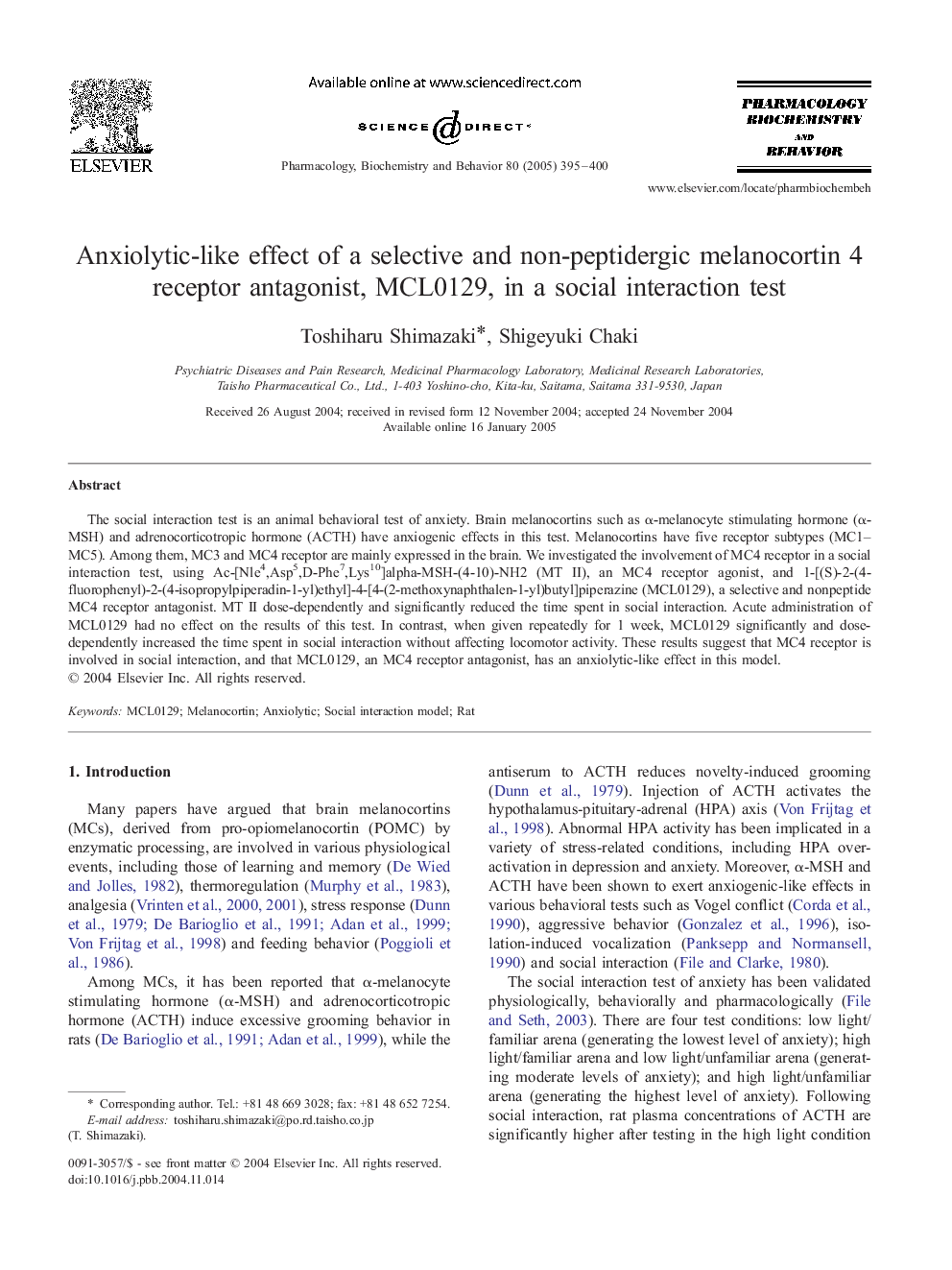| Article ID | Journal | Published Year | Pages | File Type |
|---|---|---|---|---|
| 10838656 | Pharmacology Biochemistry and Behavior | 2005 | 6 Pages |
Abstract
The social interaction test is an animal behavioral test of anxiety. Brain melanocortins such as α-melanocyte stimulating hormone (α-MSH) and adrenocorticotropic hormone (ACTH) have anxiogenic effects in this test. Melanocortins have five receptor subtypes (MC1-MC5). Among them, MC3 and MC4 receptor are mainly expressed in the brain. We investigated the involvement of MC4 receptor in a social interaction test, using Ac-[Nle4,Asp5,D-Phe7,Lys10]alpha-MSH-(4-10)-NH2 (MT II), an MC4 receptor agonist, and 1-[(S)-2-(4-fluorophenyl)-2-(4-isopropylpiperadin-1-yl)ethyl]-4-[4-(2-methoxynaphthalen-1-yl)butyl]piperazine (MCL0129), a selective and nonpeptide MC4 receptor antagonist. MT II dose-dependently and significantly reduced the time spent in social interaction. Acute administration of MCL0129 had no effect on the results of this test. In contrast, when given repeatedly for 1 week, MCL0129 significantly and dose-dependently increased the time spent in social interaction without affecting locomotor activity. These results suggest that MC4 receptor is involved in social interaction, and that MCL0129, an MC4 receptor antagonist, has an anxiolytic-like effect in this model.
Keywords
Related Topics
Life Sciences
Biochemistry, Genetics and Molecular Biology
Biochemistry
Authors
Toshiharu Shimazaki, Shigeyuki Chaki,
